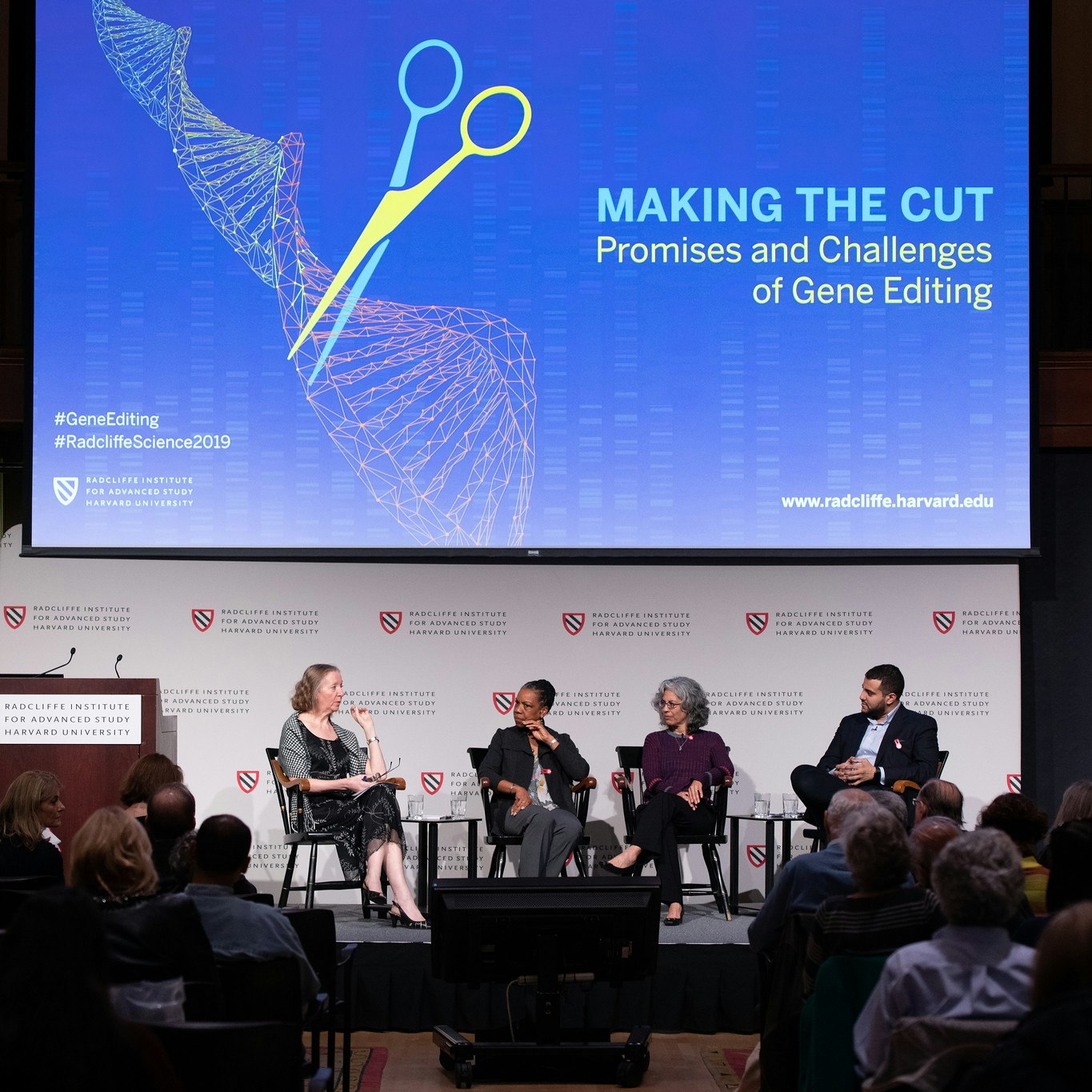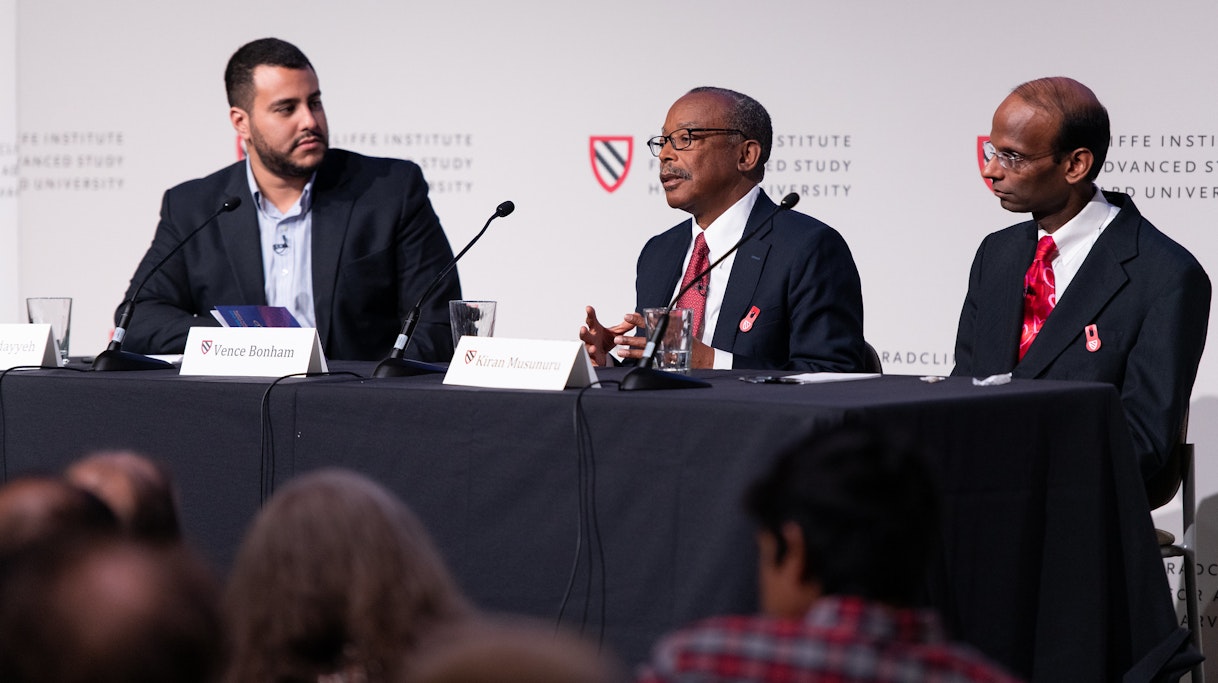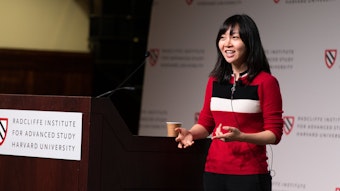Making the Cut: Promises and Challenges of Gene Editing

Gene editing, a technology that enables scientists to change an organism's DNA, holds promise for the prevention and cure of such complex human diseases as cancer, heart disease, and sickle cell anemia.
The techniques used, including CRISPR, have generated a great deal of excitement for their efficiency and potential impact on human health, but they have also raised legal and ethical issues regarding germline and embryo manipulation, and many countries have banned such techniques due to these concerns.
The 2019 Radcliffe Institute science symposium will bring together leading international scientists, clinicians, and ethicists to explore case studies of particular gene therapies as well as the legal and bioethical implications of this research.
#GeneEditing
#RadcliffeScience2019
Event Videos

WELCOME
Tomiko Brown-Nagin, dean, Radcliffe Institute for Advanced Study; Daniel P.S. Paul Professor of Constitutional Law, Harvard Law School; and professor of history, Harvard Faculty of Arts and Sciences
FRAMING REMARKS
Immaculata De Vivo, life sciences advisor, Radcliffe Institute for Advanced Study; professor of medicine, Harvard Medical School; and professor of epidemiology, Harvard T.H. Chan School of Public Health
SESSION 1: SCIENCE AND SOCIETY
MODERATOR
Charmaine DM Royal, associate professor of African & African American studies, biology, global health, and family medicine & community health, Duke University
SCIENCE KEYNOTE
Sylvain Moineau, Canada Research Chair in Bacteriophages, Department of Biochemistry, Microbiology, and Bio-informatics, Faculty of Science and Engineering, Université Laval (Canada)
SOCIETY KEYNOTE
Jonathan Kimmelman, James McGill Professor and director of the Biomedical Ethics Unit, Department of Social Studies of Medicine, McGill University (Canada)

SESSION 2: CASE STUDIES: HEART DISEASE; SICKLE CELL ANEMIA
MODERATOR
Omar Abudayyeh, fellow, McGovern Institute for Brain Research, MIT
SPEAKERS
Vence L. Bonham Jr., senior advisor to the director on genomics and health disparities, National Human Genome Research Institute
Kiran Musunuru, associate professor of medicine, Perelman School of Medicine, University of Pennsylvania

SESSION 3: CASE STUDIES: GENETIC ENGINEERING; DISABILITY RIGHTS
MODERATOR
Pilar N. Ossorio, professor of law and bioethics, University of Wisconsin Law School; inaugural bioethics scholar in residence, Morgridge Institute for Research
SPEAKERS
Matthew Porteus, professor of pediatrics (stem cell transplantation), Stanford University School of Medicine
Rosemarie Garland-Thomson, professor of English and bioethics in the Department of English and codirector of the Emory Disability Studies Initiative, Emory University

SESSION 4: CONCLUDING DISCUSSION
MODERATOR
Sharon Begley, senior writer, science and discovery, STAT
SPEAKERS
Omar Abudayyeh, fellow, McGovern Institute for Brain Research, MIT
Pilar N. Ossorio, professor of law and bioethics, University of Wisconsin Law School; inaugural bioethics scholar in residence, Morgridge Institute for Research
Charmaine DM Royal, associate professor of African & African American studies, biology, global health, and family medicine & community health, Duke University
CLOSING REMARKS
Immaculata De Vivo, life sciences advisor, Radcliffe Institute for Advanced Study; professor of medicine, Harvard Medical School; and professor of epidemiology, Harvard T.H. Chan School of Public Health


